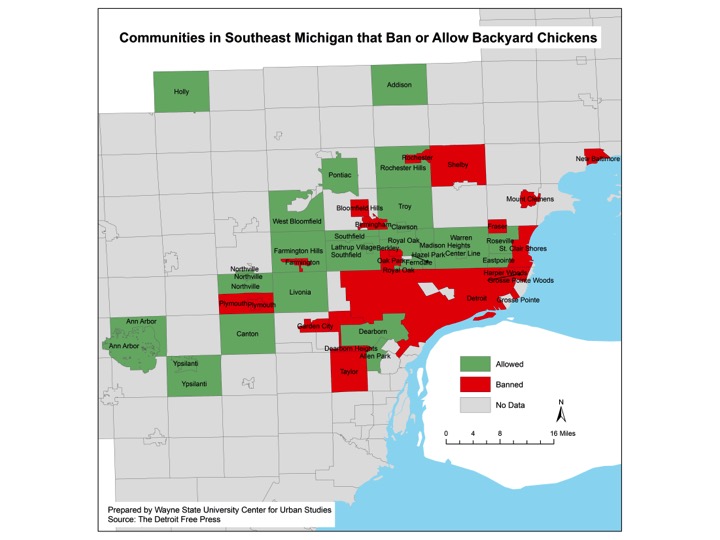As Thanksgiving approaches it is worth noting that our state has had a great success in expanding wild turkey populations across the state from near extinction in 1900 to over 200,000 birds across the state nowadays. All but the most densely populated areas of Southeastern Michigan have wild turkeys. And now they will find many cities are allowing their domesticated cousins—chickens. And at least one has added ducks.
Across Southeastern Michigan there are 30 communities that allow for residents to house chickens on their property, according to recent research conducted by the Detroit Free Press. These communities have various ways of allowing residents to have the chickens on their property. For example, in the City of Warren residents are allowed to have three hens and pay a $10 registration fee to have the chickens. In the City of Berkley though restrictions are bit tighter, with only five permits available for residents to have backyard chickens.
It is within the purview of each community as to whether or not they want to allow backyard chickens and to what extent they will be allowed. This local control comes from a rule the Michigan Agriculture Commission adopted in 2014 that essentially states not everyone can claim rights under the Right to Farm Act. The rule is intended to protect the overall goal of the Right to Farm Act, which is to protect industrial sized farmers in rural communities. The local control aspect of backyard livestock and poultry allows more suburban and urban communities to decide what is best for their community and residents. As noted above some communities only allow a certain number of permits to be distributed, while others require a fee to be paid, and only a certain number of hens to be owned by an individual. While there are 30 communities in Southeastern Michigan that allow residents to own chickens, there are 21 that have banned them. Ann Arbor recently added ducks to the list of animals backyard farmers can cultivate.
Reasons individuals want to house chickens in their backyard typically links back to wanting the chicken’s eggs. Hens can lay up to five eggs per week. Reasons communities cite for wanting to ban them include the allegation that the chickens, and their feed, may attract rats and that the hens themselves may be a noise nuisance.
